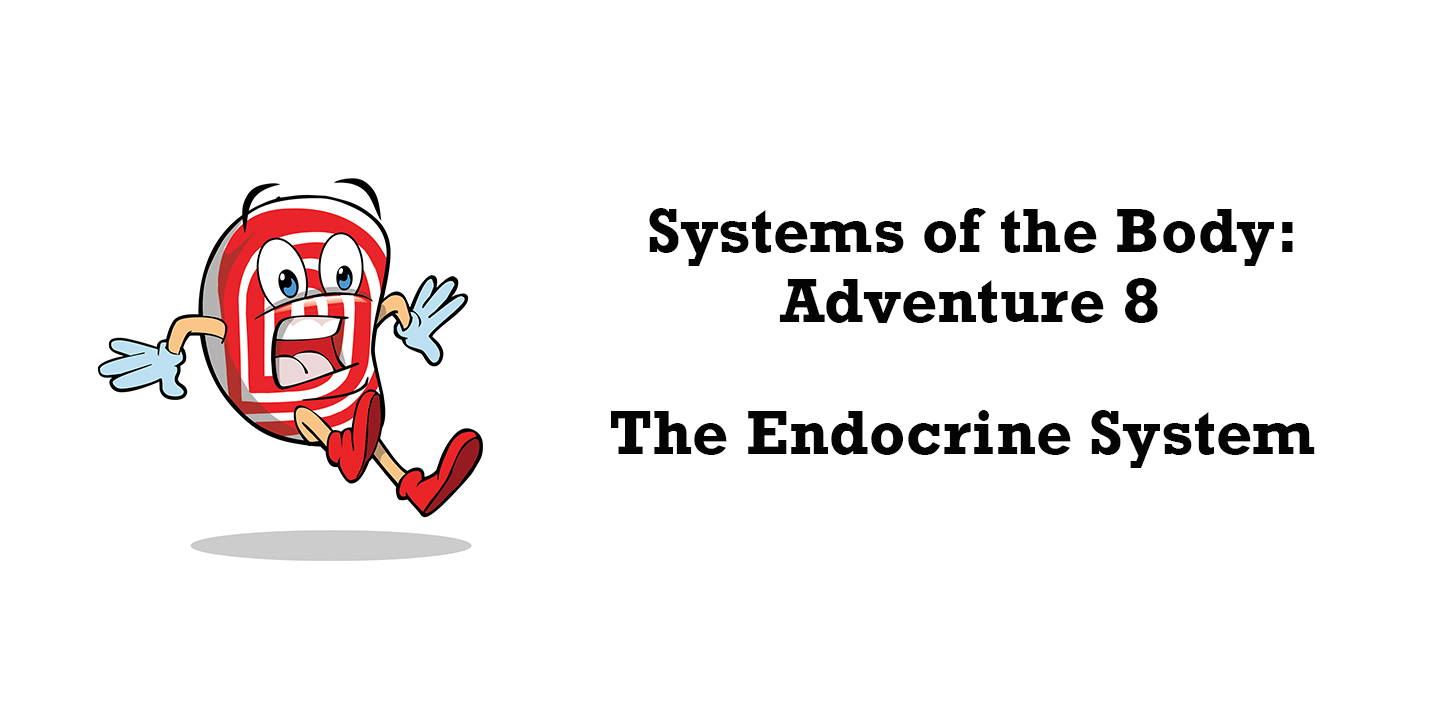
Are you afraid of spiders? Many of us are, and when confronted with one, we’ll have one of two responses - the first is fight- to spring into action and show that spider who runs the jungle. The second is flight- to run away in fear. This human response to perceived threats is aptly named the fight-or-flight response, and is the result of an interaction between our brain and endocrine system, an interaction called the - you ready? - hypothalamic-pituitary-adrenal axis*. For brevity’s sake, we call it the HPA axis.
*Say it like this: hai-po-thuh-LAM-ik pu-TOO-uh-teh-ree uh-DREE-nuhl
photo courtesy of Wikipedia https://en.wikipedia.org/wiki/Hypothalamic%E2%80%93pituitary%E2%80%93adrenal_axis
One great thing about the HPA axis is that the letters tell us the order in which the process goes. Hypothalamus (Say it like this: hai-puh-THA-luh-muhs) begins with H, and it’s the part of your brain that sets the HPA axis in motion. The hypothalamus is responsible for maintaining homeostasis (Say it like this: hoe-mee-oh-STAY-suhs), or balance, within your body. Thus, when your brain encounters a stressful stimulus, like a spider, the hypothalamus gets to work to prepare you for the fighting or flying it knows you’re about to do. The hypothalamus secretes, or produces, corticotropin (Say it like this: kor-tuh-KOW-truh-pin) releasing hormone which we’ll call CRH. This hormone heads over to the pituitary gland (starts with P), and tells it to secrete adrenocorticotropic (Say it like this: uh-dree-noh-kawr-ti-koh-trof-ik) hormone, or ACTH. ACTH then zips through your bloodstream to your adrenal glands (starts with A) and instructs them to secrete the last hormone, cortisol (Say it like this: KOR-tuh-saal).
Cortisol is the hormone that really makes the magic happen. Cortisol tells your heart to beat harder and faster, allowing increased blood flow to your skeletal muscles in preparation of a brutal brawl or speedy escape. It also causes you to sweat, to balance out the heat your body will expend in the fight or flight, and gets your glucose circulating, from which your cells derive extra energy. It may seem that a muscular boost, cooling system, and second wave of cellular energy are overreactions to a spider - after all, most can be killed with a single stamp of the foot. Remember though, that humans haven’t always led lives as awesome as ours, with spiders being the biggest daily danger. Our ancestors could have been confronted with wolves, bears, or saber tooth tigers, and a fight with or flight from any would call for more serious heavy lifting.
What do you call it when you’re out of cortisol? Adre-NULL
At this point, it might appear that cortisol is a super-hormone and can do no wrong, but just as cortisol enhances certain systems, it also works to suppress others. Why would it suppress systems in a life-or-death situation? To answer that, think about it from the perspective of prioritization. When fighting or fleeing for your life, the need to eat is less important than the need to keep moving - in fact, it could get in the way. As such, cortisol curbs digestive symptoms and functions, like appetite, until your stressful situation is at an end. This way, if you’re ever evading the wrath of an angry grizzly bear, your body instinctively knows not to take this time to stop for lunch.
Sources:
https://www.medicalnewstoday.com/articles/312628#function
https://www.hopkinsmedicine.org/health/conditions-and-diseases/adrenal-glands
https://www.mayoclinic.org/healthy-lifestyle/stress-management/in-depth/stress/art-20046037
https://www.healthline.com/health/mental-health/fight-flight-freeze#in-the-body









Leave a comment (all fields required)